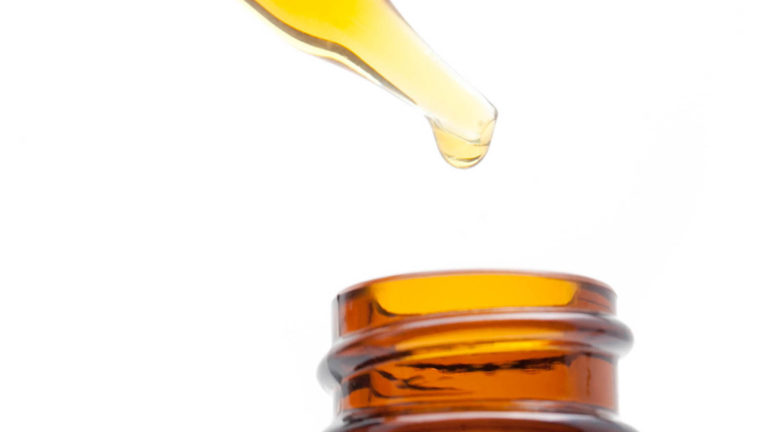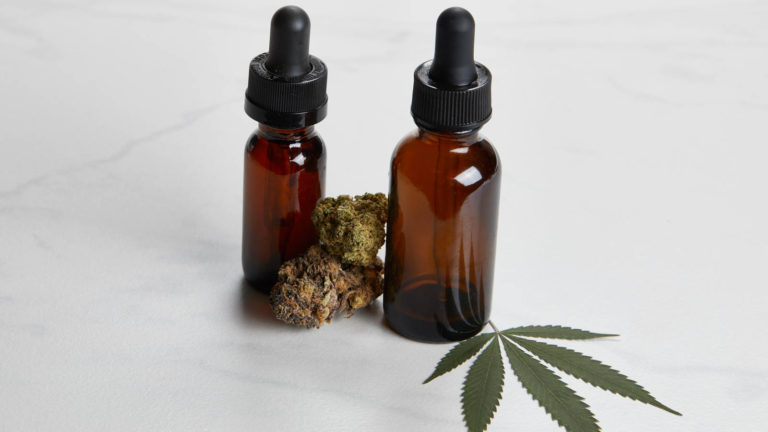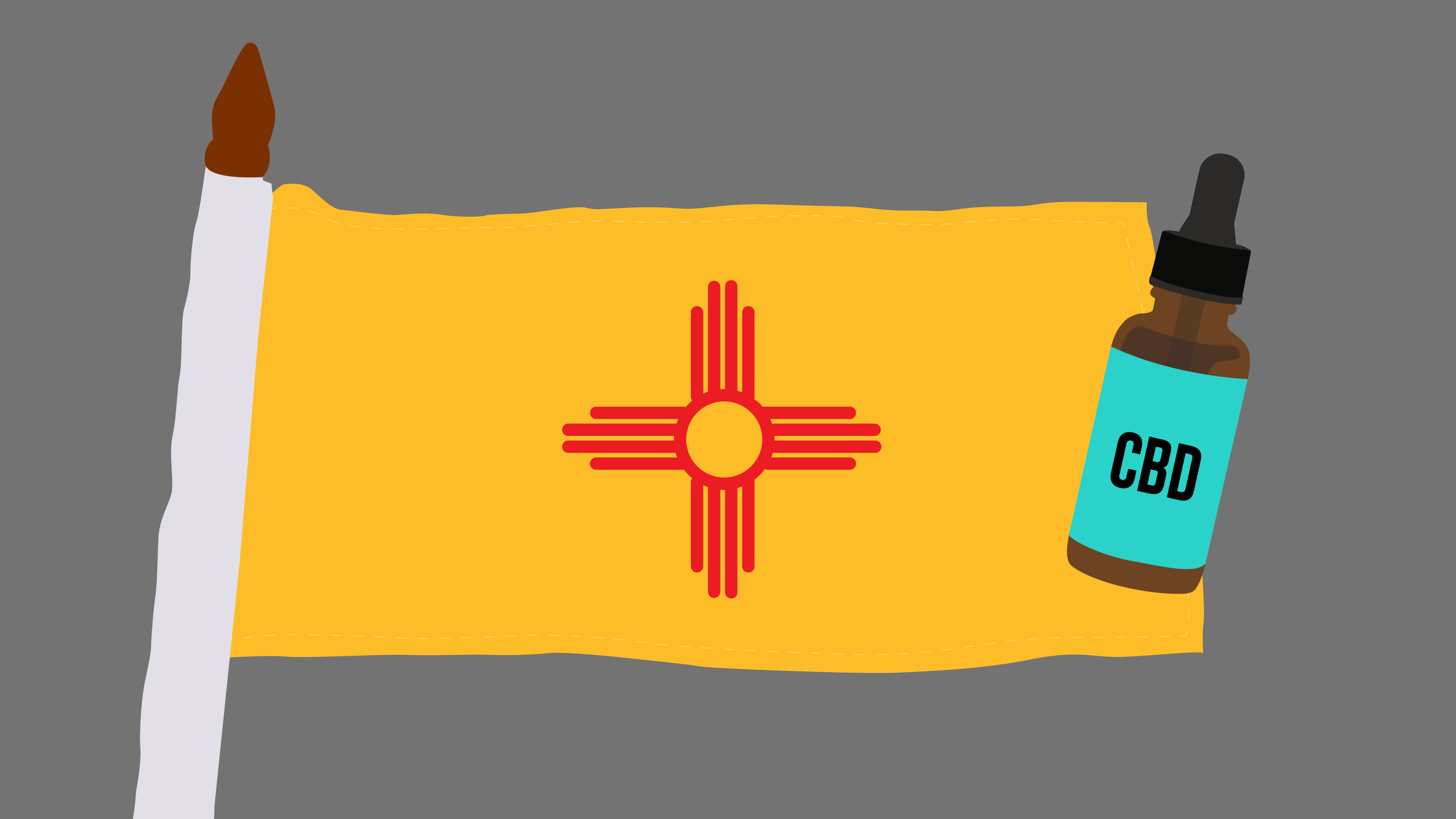Yes. Hemp-derived CBD is legal in New Mexico, while marijuana-derived CBD is permitted for qualifying patients registered with the state's medical marijuana program. Like many states, New Mexico has legalized the production of hemp and products derived from it, including cannabidiol (CBD), following suit with federal changes made under the U.S. Farm Bill in 2014 and 2018.
Three state agencies have been placed in charge of setting up licensing, testing, and certification procedures for the cultivation, processing, and transportation of hemp products. New Mexico requires documentation to follow hemp from the field to the retailer but hasn't set up rules for labeling or disclosing that information on to consumers.
What is CBD?
CBD is a non-intoxicating cannabinoid found in the cannabis plant. It's the second most abundant cannabinoid in cannabis behind THC, which does have intoxicating effects. Many people use CBD for its potential ability to reduce pain, inflammation, and anxiety, as well as a treatment to reduce or suppress seizures. It can be derived from either marijuana or hemp plants; the latter is legal in many countries because it contains negligible levels of THC.
 Photo by: Gina Coleman/Weedmaps
Photo by: Gina Coleman/WeedmapsImage lightbox

As research remains ongoing, there is a growing body of evidence pointing to CBD's potential efficacy in various medical applications.
Why is CBD sometimes illegal?
The 1970 Federal Controlled Substances Act categorized all types of cannabis, including hemp, as Schedule 1, defined as a substance with a high potential for abuse, no accepted medical use, and a likelihood for addiction. The act prevented further research that may have shed light on beneficial uses for cannabis.
This broad classification was first changed following the passage of the 2014 Farm Bill, which recognized the difference between hemp, which contains less than 0.3% THC by weight, and marijuana, which contains more than 0.3% THC by weight and is still considered to be a Schedule 1 substance.
 Photo by: Gina Coleman/Weedmaps
Photo by: Gina Coleman/WeedmapsImage lightbox

The 2018 Farm Bill officially removed hemp from the list of Controlled Substances, although marijuana is still illegal in states without adult-use legislation in place. Therefore, CBD derived from marijuana plants is still illegal, while CBD derived from hemp is legal as long as it contains less than 0.3% THC.
The 2018 Farm Bill also granted the U.S. Food and Drug Administration (FDA) the authority to regulate CBD labeling, therapeutic claims, and its use as a food additive. Despite the passage of the Farm Bill, the FDA has taken the stance that even hemp-derived CBD may not be added to food and beverages, nor marketed as dietary supplements. While the FDA has begun a process of reevaluating that stance, it has yet to revise its rules or specifically regulate CBD products. The FDA has been strict when it comes to health claims and content that could be construed as medical advice about CBD.
While the Farm Bill did legalize hemp, the production and the sale of any product derived from it, including CBD, it is still highly regulated. The bill also allows some states to make their own rules for CBD cultivation and sale. States may also try to regulate CBD in food, beverages, dietary supplements, and other products instead of waiting for final FDA rules.
New Mexico CBD laws
After the passage of the US 2014 Farm Bill, New Mexico was one of many states that moved to legalize industrial hemp production, but the bill was vetoed by Republican Gov. Susana Martinez. After that veto was overturned by the New Mexico Supreme Court in 2017, the Legislature moved forward and eventually prevailed, placing the legal standard for hemp at 0.3% or less THC by weight, following suit with the limit set by the federal government. The bill acknowledges the right of federally recognized Native American tribes to set up their own regulations for hemp.
In March 2019, New Mexico lawmakers passed HB 581, legalizing hemp and beginning the process of establishing regulations for its production, testing, transportation, and processing.
According to HB 581, individual permits are required for growing, extracting, and manufacturing hemp products, meaning a vertically integrated operation would need to obtain three separate permits, each of which cost $1,000 per year. A harvest certificate, obtained after testing by a state-licensed facility, and manifest are required to follow all products through the supply chain.
Furthermore, every hemp or hemp-derived product is required to have a certificate of analysis from an approved lab with a batch ID number, testing date, method of analysis, and authorized signature. The certificate must follow finished products to the retailer, but for direct-to-consumer sales, this requirement is optional and by the purchaser's request. Transporting hemp-derived CBD without a harvest certificate is a petty misdemeanor with a fine of up to $500.
The law states that anyone processing or transporting CBD to be used for human consumption must comply with the state's food safety laws. The oversight detailed in HB 581 stops once the product reachers the retailer, perhaps in deference to the FDA's jurisdiction over CBD in food, cosmetics, and other consumer items.
New Mexico CBD possession limits
The state has not set any limits on possession of hemp-derived CBD for consumers.
Where to buy CBD in New Mexico
CBD products in New Mexico can be found in select Walgreens locations, as well as in smaller, local pharmacies and health food stores. More locations will likely begin to carry CBD products as the state works out its licensing process.
Shopping online is another option, as the U.S. Postal Service has confirmed that legal CBD products may be shipped by mail. CBD products can usually be found online at the websites of specific brands, while an extensive list of reputable CBD products can be found on Weedmaps.
How to read CBD labels and packaging
The FDA currently does not allow CBD-infused food, drinks, or dietary supplements to be sold, and hasn't reached a final conclusion on regulating hemp-derived CBD products. While the FDA slowly and cautiously approaches making new regulations for CBD products, the gap between regulated products and anything goes grows wider, leaving consumers at risk of buying poor-quality products. When buying CBD products, look for these on the label:
- Amount of active CBD per serving
- Supplement Fact panel, including other ingredients
- Net weight
- Manufacturer or distributor name
- Suggested use
- Full spectrum, broad spectrum, or isolate
- Batch or date code

